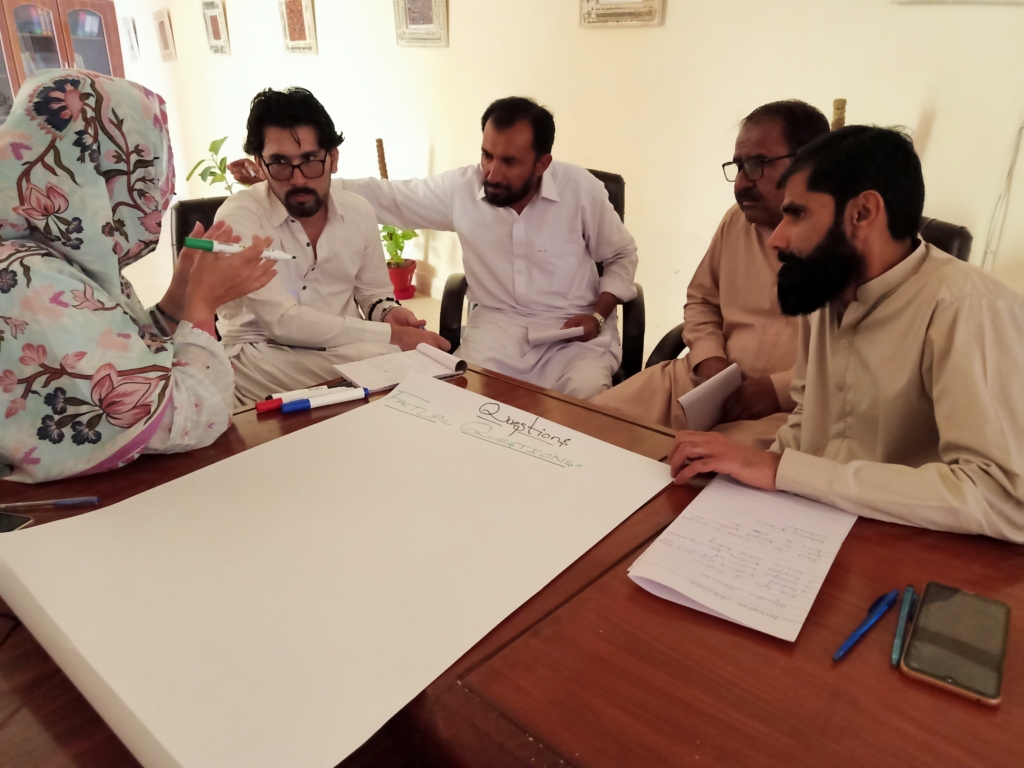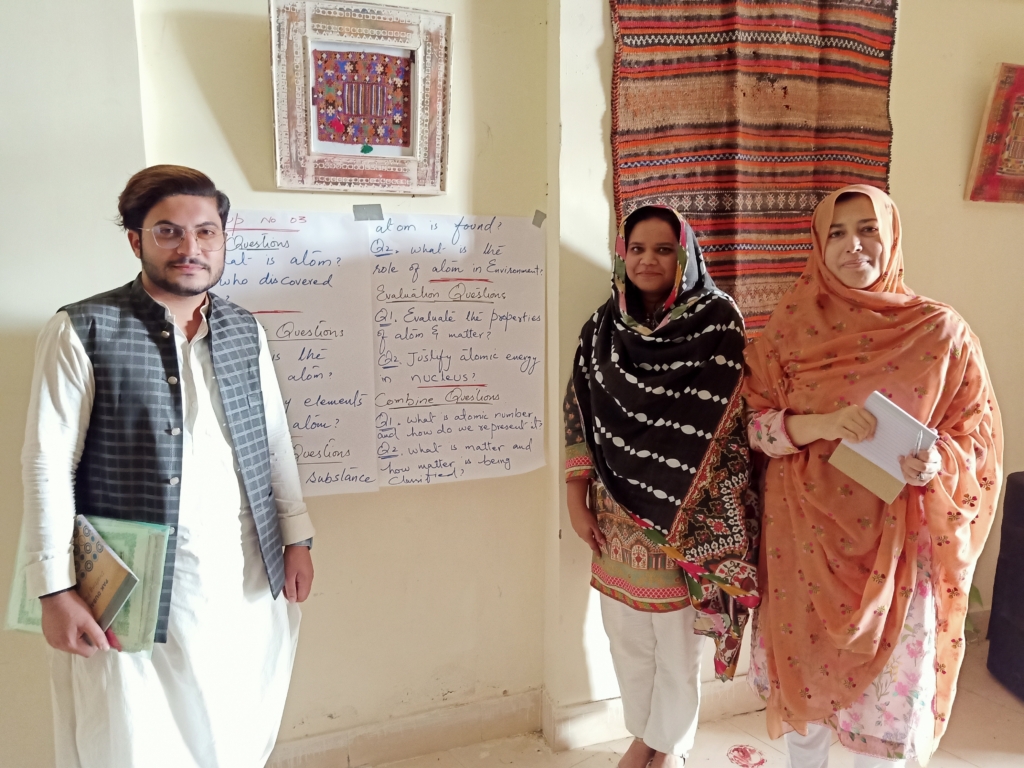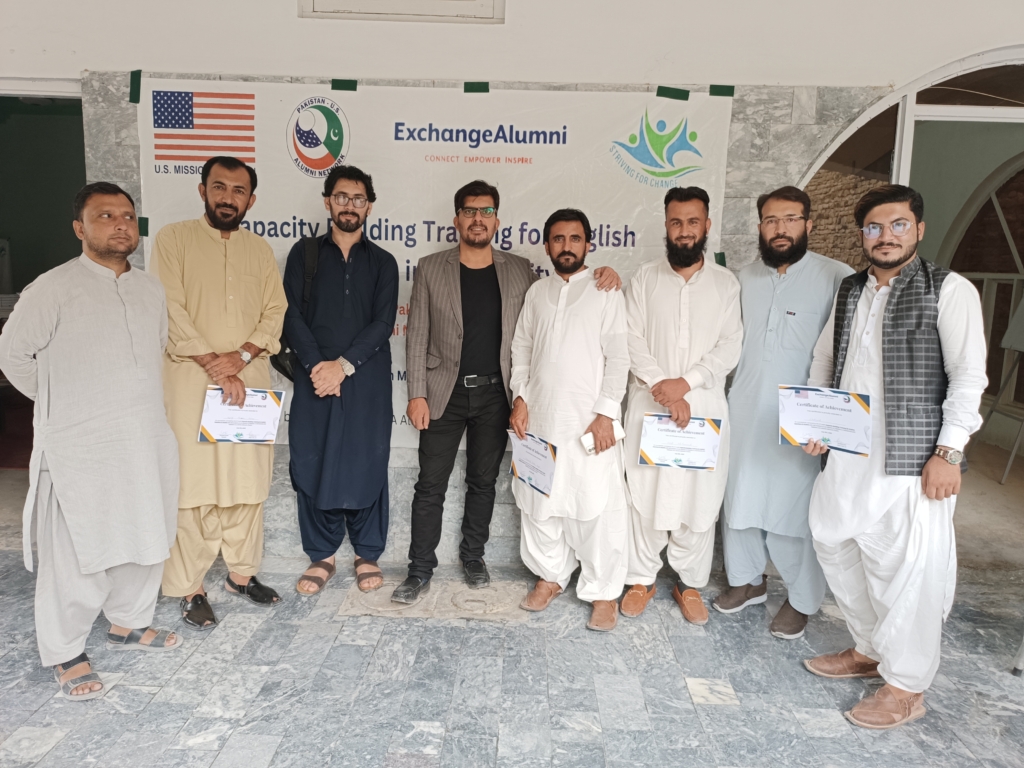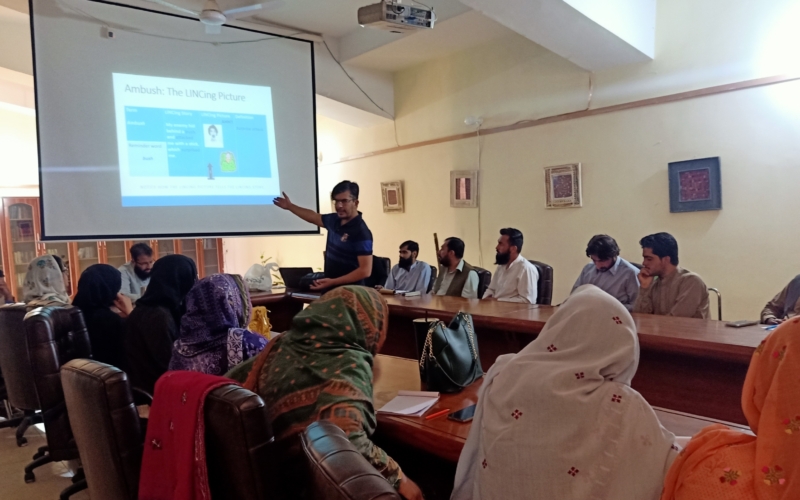By: Shehneela Mazhar
Salman Khan is a shining example of what can be accomplished when one is passionate about making a difference in the world. His Alumni Small Grant (ASG) project to improve English language teaching in Quetta City, Pakistan, is a testament to his dedication to education and his commitment to empowering others. Salman Khan, an alumnus of the TEA program in 2019, led an ASG project that would redefine English language education for local teachers. His initiative titled “Capacity Building Training Program for In-service English Teachers in Quetta City,” aimed at accomplishing the transformative mission of empowering educators and reshaping the classroom experience.

Project Goals: Bridging Gaps and Cultivating Excellence
Salman’s project aimed to bridge a critical gap in English language teaching methodologies. With traditional methods often falling short of meeting the evolving needs of students, the project sought to equip 30 English teachers in Quetta City with a diverse toolkit of teaching techniques. The primary objectives were:
- To familiarize educators with a range of modern English language teaching methodologies.
- To enable teachers to create engaging and effective classroom experiences.
- To empower educators to adapt their teaching methods to different learning styles.
- To improve students’ communication skills and overall language proficiency.
Training for Transformation: A Holistic Approach
The heart of the project lay in its meticulously planned 10-week training program. Spread across 20 sessions, each lasting 3 hours, the curriculum was designed to immerse educators in diverse English language teaching methodologies. From traditional grammar-focused approaches to modern communicative methods, the program aimed to equip teachers with an array of tools to enrich their pedagogical approach.

Empowering Beneficiaries: Teachers at the Core
The project’s direct beneficiaries were 25 English teachers, encompassing a balanced gender distribution with 12 male and 13 female educators. The impact, however, transcended these numbers, with 3750 indirect beneficiaries, including 1800 males and 1950 females. Additionally, three TEA alumni were an integral part of the project team, enhancing its expertise and reach.
Project Methodology: Crafting Empowered Educators
The project followed a well-structured methodology to ensure its success:
- Inception and Partner Engagement: An initial meeting set the stage for project discussions, followed by collaboration with the project partner, BRDS, to establish the training venue.
- Outreach and Selection: Advertisement campaigns, both online and physical, invited interested teachers to apply. Shortlisted candidates were interviewed and selected, ensuring a diverse group of participants.
- Interactive Training Sessions: The heart of the project, these sessions spanned 10 weeks, comprising interactive activities, presentations, group work, and discussions. Expert guest speakers from universities and education fields enriched the learning experience.
- Technology Integration and Engagement: Social media platforms were harnessed for project publicity and engagement. The 10-week course was conducted with two days of training per week, totaling 60 hours of transformative learning.
- Culminating Ceremonies: The project began with an opening ceremony to engage stakeholders and concluded with a closing ceremony where participants shared feedback, received certificates, and expressed gratitude to project partners.

Unveiling the Curriculum: A Journey of Discovery
The curriculum encompassed a comprehensive range of topics, each aimed at expanding the educators’ horizons:
- Week 1: Exploring Bloom’s Taxonomy to encourage critical thinking and holistic learning.
- Week 2: Delving into various methods of English language teaching, including grammar translation, direct method, and communicative teaching.
- Week 3: Unlocking the world of writing through strategies like Step Up Writing and Arts of Writing.
- Week 4: Introducing LINCS Vocabulary Strategy to enhance language acquisition.
- Week 5: Embracing Project-Based Learning for student autonomy and engagement.
- Week 6: Harnessing the MUSIC Model to motivate and empower learners.
- Week 7: Unpacking WIDA to design effective language assessments.
- Week 8: Exploring UDL (Universal Design for Learning) to ensure inclusivity.
- Week 9: Infusing technology in large classrooms for dynamic learning experiences.
- Week 10: Embracing formative assessment models and promoting self-reflection.
Empowering Educators: Voices of Impact
Salman’s project wasn’t just about curriculum; it was about sparking transformation within educators themselves. As Abdul Jaleel, a beneficiary, shared, “This project was a game-changer for me. Witnessing my students confidently express themselves in English is incredibly rewarding. This project reshaped my teaching approach and breathed new life into my classroom.”
Bibi Aaisha, another beneficiary, exclaimed, “The project was a complete transformation for me. It shattered my self-imposed limits by introducing diverse methodologies. With new strategies and real-life examples, I saw my students’ language skills soar.”
A Collaborative Effort: U.S. Mission and PUAN
Salman’s journey was enriched through collaboration with the U.S. Mission in Pakistan and the Pakistan-U.S. Alumni Network (PUAN). Their unwavering support and expertise amplified the project’s impact, turning it into a beacon of educational transformation. By fostering this partnership, the project exemplified the power of collaboration to create lasting change.
Salman Khan’s ASG project in Quetta City stands as a testament to the potential for positive transformation when education, innovation, and collaboration converge. As the echoes of new teaching methodologies reverberate through classrooms, the project’s legacy will undoubtedly reshape the future of English language education in the region.

